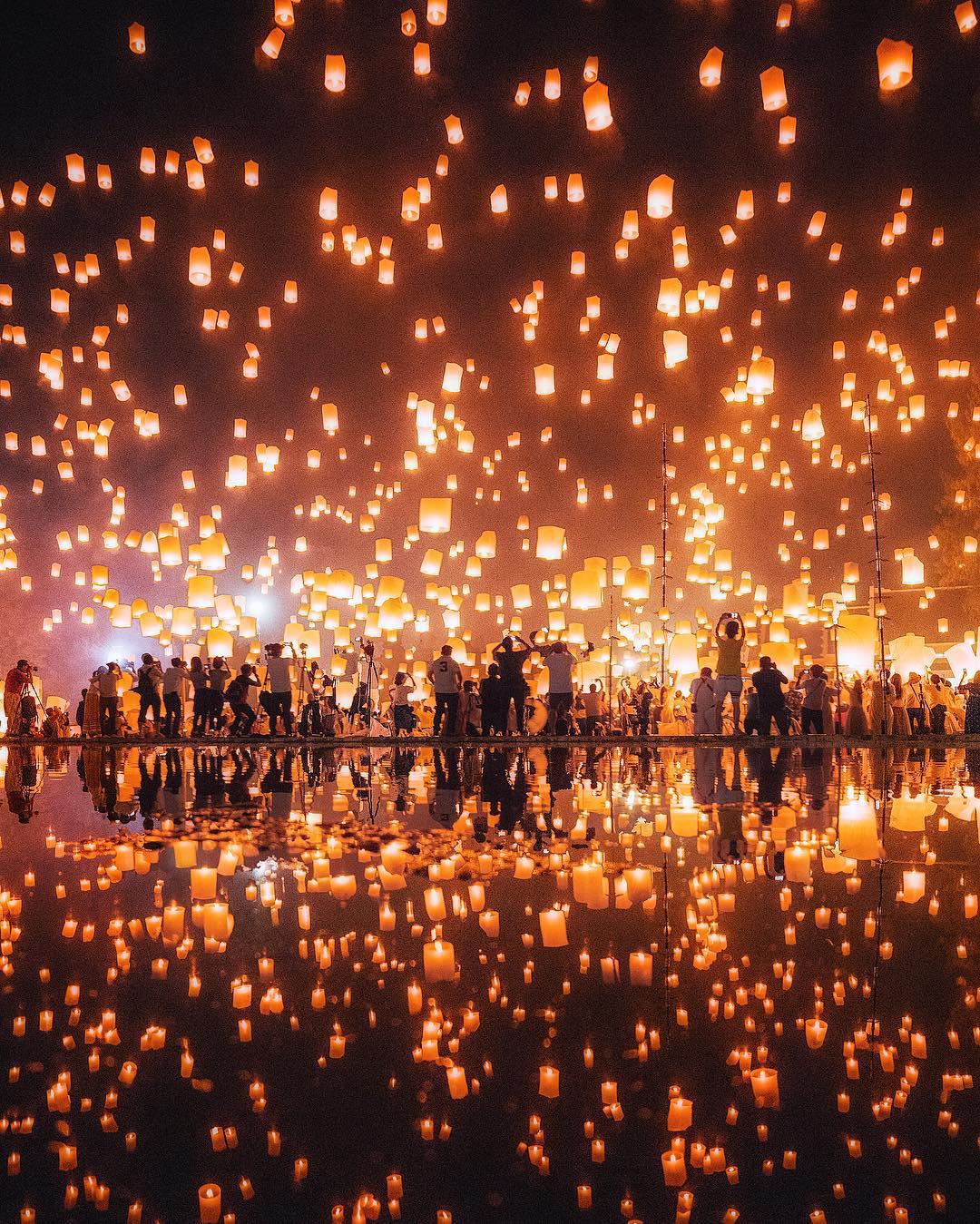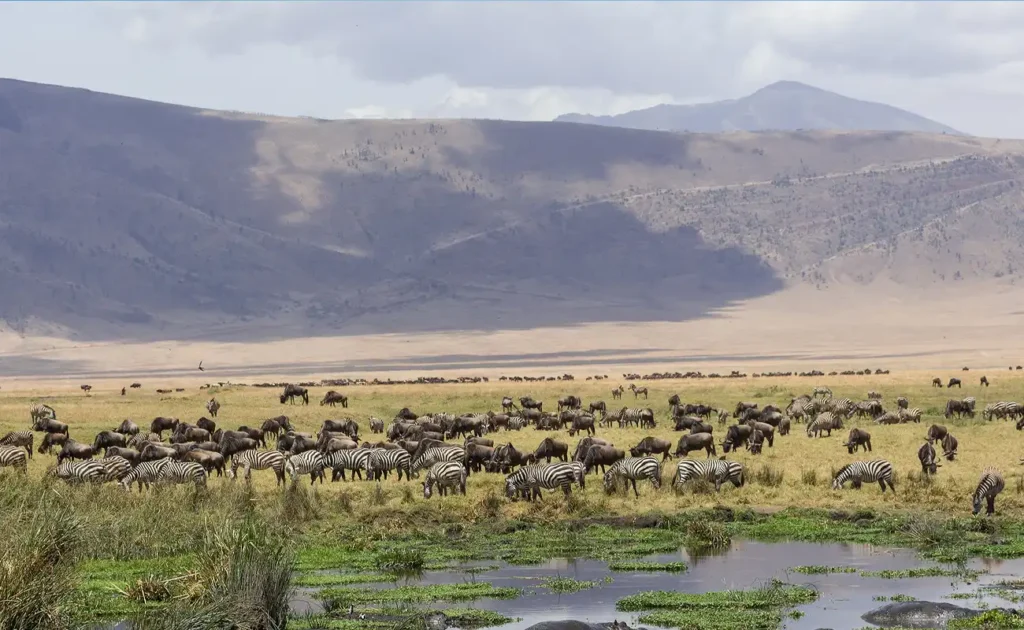Every year, a staggering 500 million people attend cultural festivals around the globe, underscoring their immense appeal and impact. These gatherings not only showcase artistic expression but also strengthen the social fabric, bridging diverse communities with a shared celebration of heritage and tradition. The vivid spectrum of colors, soulful music, and culinary delights uniquely characterize each festival, offering a kaleidoscope of experiences.
The history of cultural festivals dates back centuries, often rooted in religious or agricultural celebrations. For instance, the Rio Carnival, a vibrant expression of Brazilian culture, attracts over 2 million visitors daily, highlighting its global significance. As these events evolve, they continue to promote cultural preservation and economic growth, driving tourism and fostering a deeper understanding among different cultures.

Significance of Cultural Festivals and Events
Cultural festivals and events act as a bridge connecting people with different backgrounds. They offer an opportunity to celebrate and preserve traditions while educating younger generations. These celebrations often include traditional music, dance, and art forms, reminding everyone of their cultural roots. Sharing a meal or participating in age-old customs fosters unity and understanding among diverse communities. Festivals not only unite families but also entire societies.
One significant impact of cultural festivals is their role in boosting the local economy. They attract tourists from all over the world, which benefits local businesses. Restaurants, hotels, and shops experience a surge in activities, making festivals financially important. According to the article, attending cultural events during specific months, like in Tanzania, enhances visitor experiences further. Thus, cultural festivals contribute significantly to regional development and prosperity.
Moreover, these festivals help in the preservation of languages and dialects. Many events prioritize maintaining linguistic traditions alongside cultural practices. For instance, festival narratives are often shared in native languages, keeping them alive for future generations. This not only preserves verbal heritage but also builds pride and identity. Consequently, festivals become vital in keeping cultural diversity vibrant and relevant.
The importance of cultural festivals in promoting peace and global understanding cannot be overstated. People from different countries gather to learn and appreciate each other’s customs. According to [this post](https://www.siasafaris.com/visit-tanzania-in-october/), these interactions foster respect and create lifelong friendships. As such, cultural festivals act as platforms for global harmony and peace, paving the way for a more interconnected world.
Best Festivals in the World: 10 Unusual Celebrations and National Customs
Role in Preserving Heritage and Traditions
Cultural festivals play a crucial role in preserving heritage and traditions. They serve as a living museum where customs are exhibited for both locals and visitors. During these events, people engage in traditional dances, wear ancestral costumes, and share historical stories. This immersive experience helps to pass knowledge and values to new generations. In this way, cultural festivals act as a key tool for cultural preservation.
Many festivals have historical roots reaching back hundreds of years. By reenacting historical events or rituals, communities keep their history alive. For example, festivals based on ancient harvest rituals remind us of humanity’s deep connection to nature. This legacy strengthens people’s appreciation for both past and present. Such events also inspire communities to take pride in their unique heritage.
Engagement in cultural festivals helps preserve rare languages and dialects. Through songs, prayers, and chants, these languages are showcased and celebrated. Schools and families often encourage children to participate, enriching their understanding. As a result, endangered languages find a new avenue for survival. With language preservation, communities maintain their distinct identity and cultural spirit.
The celebration of cultural festivals brings both art and craft into the spotlight. Traditional crafts, like pottery and weaving, gain renewed attention during these events. These skills are shared through workshops, allowing attendees to learn and appreciate their intricacies. Ultimately, such exposure ensures that these time-honored crafts do not fade away. Thus, festivals are essential in keeping traditional arts alive and flourishing.
Evolution of Cultural Festivals over Time
Cultural festivals have evolved significantly over the centuries. Originally, these events were closely tied to religious or agricultural cycles. People gathered to celebrate harvests, honor deities, or mark seasonal changes. Over time, as societies modernized, the focus expanded to include national pride and historical commemorations. This evolution mirrors the broader changes in societal values and priorities.
As cultural borders blurred, festivals began incorporating elements from different traditions. This mix created vibrant, multicultural celebrations that draw larger, diverse audiences. For instance, international food festivals now feature cuisine from various countries, inviting everyone to explore new tastes. This blending of cultural practices enriches the festival experience, fostering greater global understanding. Modern festivals often celebrate unity through diversity.
Technological advancements have also transformed how festivals are organized and experienced. Social media campaigns, virtual reality, and live streaming bring these events to a global audience. Interactive elements like online voting for performances engage participants even before the festival starts. These innovations make cultural festivals accessible to those who cannot attend in person. As a result, the reach and impact of these events have dramatically increased.
Environmental awareness has influenced the evolution of cultural festivals. Many organizers now adopt sustainable practices to minimize their ecological footprint. Efforts like using biodegradable materials, promoting public transport, and reducing waste are becoming standard. Such initiatives make festivals not only celebrations of culture but also responsible events. This shift reflects a growing consciousness about preserving our planet for future generations.
Impact of Cultural Festivals on Local Economies
Cultural festivals significantly boost local economies by attracting tourists from near and far. During these events, the influx of visitors increases demand for hotels, restaurants, and transportation services. This surge in tourism leads to higher revenues for local businesses. Consequently, many small and medium-sized enterprises thrive during festival seasons. Local artisans and vendors also benefit, as they get a platform to showcase and sell their products.
These festivals often create temporary job opportunities. For instance, additional staff is needed for event setup, security, and food services. This temporary employment can be crucial for students or seasonal workers. Additionally, festivals sometimes lead to long-term job creation in sectors like tourism and hospitality. These jobs contribute to reduced unemployment rates and increased income levels in the community.
The economic benefits of cultural festivals are not limited to direct spending. Indirect spending also plays a crucial role. Visitors often spend money on nearby attractions, extending their stay in the area. This extended tourism boosts other local businesses like museums, parks, and shops. The multiplier effect of this spending can be substantial, spreading benefits throughout the local economy.
Moreover, cultural festivals enhance the town’s or city’s brand and reputation. Successful events attract media coverage and positive word-of-mouth reviews. This publicity can lead to increased tourism beyond the festival dates. It also encourages repeat visits, fostering a loyal tourist base. Towns and cities become known for their vibrant cultural scenes, attracting investments and further growth.
A well-organized festival can lead to infrastructure improvements. Local governments often invest in better roads, public transport, and facilities to accommodate visitors. These improvements benefit residents long after the festival ends. Enhanced infrastructure makes the area more attractive for future events and activities. Thus, the positive impact of cultural festivals extends far beyond their duration.
Key Features that Define Distinctive Cultural Events
Distinctive cultural events are marked by unique traditions and rituals. These elements set them apart and give each event its character. In many cases, events highlight traditional music, dance, and storytelling. Such performances reflect the rich cultural heritage of a community. They offer an authentic glimpse into the history and customs of a people.
- Traditional attire and costumes
- Authentic cuisines and food stalls
- Community participation and inclusivity
- Unique rituals or ceremonies
- Cultural workshops and educational sessions
Food often plays a pivotal role in defining cultural events. Participants can sample traditional dishes that are made precisely the way ancestors did. These flavors not only satisfy the palate but also tell stories of the region’s culinary journey. Festival-goers enjoy trying new foods that might not be available elsewhere. Thus, food becomes a central attraction at many cultural gatherings.
The participation of the local community enhances the authenticity of cultural events. Residents are actively involved in the planning and execution, ensuring that traditions are respected. Community members often perform or exhibit their crafts, lending a personal touch to the event. This active participation helps sustain the event over time. Hence, local support is crucial for the success of cultural festivals.
Education is another cornerstone of distinctive cultural events. Many events include workshops or sessions that teach visitors about the history and practices of the culture. Attendees can learn traditional crafts, attend lectures, or participate in discussions. This educational aspect broadens the festival’s appeal, drawing in people eager to learn. In this way, cultural events not only entertain but also inform.
How Cultural Festivals Foster Global Harmony and Understanding
Cultural festivals are like bridges connecting people from different parts of the world. They offer an opportunity for attendees to experience diverse traditions and customs firsthand. Visitors can learn about different ways of life and share their own stories. Through these shared experiences, mutual respect and understanding blossom. This cultural exchange can lead to friendships that span across continents.
Many festivals feature international participants and performances. Music and dance allow expressions that go beyond language barriers, uniting people in rhythm and melody. A table displaying the variety of performances can look like this:
| Performance Type | Origin |
|---|---|
| Flamenco Dance | Spain |
| Taiko Drumming | Japan |
| Reggae Music | Jamaica |
Food stalls at cultural festivals offer tastes that represent various regions. Sampling traditional dishes allows people to connect over flavors and ingredients unique to each culture. Sharing a meal is a universal gesture of goodwill and hospitality. It opens doors to conversations, leading to friendships. Thus, food becomes a catalyst for global unity at festivals.
Workshops and discussions held during these events encourage deeper learning and dialogue. Participants are invited to explore cultural significance behind art, rituals, and symbols. This education builds knowledge and empathy among attendees. Engaging in these activities shows respect for other cultures. It promotes appreciation for cultural differences and similarities alike.
Cultural festivals cultivate an atmosphere of peace and cooperation. They celebrate shared human experiences, reminding us that our commonalities outweigh our differences. By participating in these events, people from various backgrounds come together with open hearts. Such gatherings inspire actions towards a more understanding and united world. In this way, cultural festivals help pave the path to global harmony.

Frequently Asked Questions
Cultural festivals provide a glimpse into the rich traditions and diversity of communities worldwide. These events are invaluable for teaching heritage, boosting local economies, and fostering a deeper understanding among people from different backgrounds.
1. What is the importance of cultural festivals in education?
Cultural festivals in education offer experiential learning opportunities that go beyond the classroom. Students can immerse themselves in traditions, art, and language, thereby enhancing their cultural awareness and appreciation. These festivals provide a platform for interactive learning, making historical and cultural studies more engaging and relevant.
Through involvement in cultural festivals, students can develop a deeper understanding of diversity and inclusion. They learn to appreciate the unique contributions of various cultures, promoting empathy and respect. This exposure helps in shaping a more globally conscious and informed generation, emphasizing the importance of cultural literacy in education.
2. How do cultural festivals contribute to tourism?
Cultural festivals are key drivers of tourism, attracting visitors eager to experience local traditions. These events highlight the unique aspects of a region, encouraging tourists to explore and spend within the community. Local economies thrive as tourism increases, benefiting hotels, restaurants, and local vendors.
Festivals often coincide with traditional celebrations, offering visitors a chance to witness unique customs and rituals. This authenticity enhances the tourism experience, ensuring lasting memories for visitors. Word-of-mouth recommendations and social media shares further amplify the reach and impact of such festivals, potentially boosting future tourism.
3. Why are cultural festivals important for community bonding?
Cultural festivals serve as a unifying force within communities, bringing people together in celebration. They offer a platform for residents to reconnect with their roots and celebrate their shared heritage. This communal participation fosters a sense of belonging and pride among participants, strengthening community ties.
These events also provide opportunities for collaboration and dialogue among different cultural groups. By celebrating diversity together, communities can foster mutual respect and understanding. This shared experience promotes community cohesion, ultimately leading to a more inclusive and harmonious environment.
4. What role do cultural festivals play in preserving languages?
Cultural festivals play a vital role in preserving endangered languages by providing a stage for their use and celebration. Festivals often include storytelling, songs, and ceremonies conducted in native languages, showcasing linguistic heritage. This public exposure encourages language enthusiasts and linguists to continue their preservation efforts.
By introducing younger generations to indigenous languages during these events, festivals help keep these languages alive. Children and youth are more likely to learn and use the language when they see it valued and celebrated. Thus, cultural festivals act as a conduit for linguistic preservation, keeping languages vibrant and relevant.
5. How do cultural festivals impact local crafts and artisans?
Cultural festivals provide artisans with a platform to showcase and sell their crafts, aiding in economic sustainability. This exposure helps artisans gain recognition and promotes traditional craftsmanship. Festivals often feature workshops and demonstrations, allowing artisans to share their skills and stories with a wider audience.
By participating in these events, artisans can connect with potential customers and other craftspeople. This networking opportunity can lead to collaborations and greater demand for handmade products. As a result, cultural festivals boost the local crafts industry, ensuring that traditional skills continue to thrive and evolve.
What Are the Advantages of Participating in Cultural Festivals and Events? | United States Revealed
Conclusion
Cultural festivals and events continue to be powerful tools for bridging divides and celebrating diversity. They preserve traditions and breathe new life into age-old customs, fostering social harmony and understanding. By bringing together communities, festivals not only enhance cultural appreciation but also contribute to economic prosperity.
As the world becomes more interconnected, the importance of these cultural gatherings cannot be overstated. They serve as ongoing reminders of our shared humanity and the rich tapestry of global traditions. In this way, cultural festivals inspire, educate, and unite, paving the way for a more inclusive and harmonious world.



